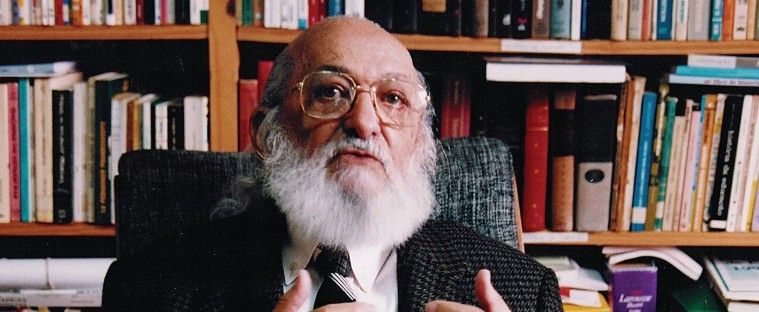
Paulo Freire Digital: Pedagogy of Autonomy in Online Classes
In an increasingly connected world, the words of Paulo Freire, written decades ago, gain new relevance in the context of digital education. When Freire stated that "teaching is not transferring knowledge, but creating the possibilities for its own production or construction," he established a principle that has become even more crucial in the online environment.
The Interdependence Between Teacher and Student
This reflection is especially pertinent when we analyze his famous quote in the context of remote classes: "There is no teaching without learning." In the digital environment, this interdependence between teacher and student manifests in unique ways. The educator is no longer just a transmitter of content but a digital mediator who needs to create virtual spaces for dialogue and the collective construction of knowledge.
Respect for the Learner's Autonomy
In Pedagogy of Autonomy, Freire emphasized that "teaching requires respect for the autonomy of the learner's being." In the digital context, this autonomy gains new dimensions. Students have access to an unprecedented amount of information and resources but need to develop critical skills to navigate this ocean of data. Therefore, the educator's role transforms: they must guide students in developing their digital autonomy.
Education as an Act of Love and Courage
When Freire declared that "education is an act of love, hence an act of courage," he could not have foreseen the challenges of online education. However, his message resonates strongly today, as educators and students need to demonstrate courage to adapt to new technologies and teaching methodologies. The love for education is manifested in the persistence to maintain meaningful human connections, even through screens.
Mediatization and Learning Community
Today's reality of digital education makes us reflect on another of Freire's statements: "No one educates anyone, no one educates themselves, people educate each other, mediated by the world." In the online context, this mediation occurs through digital platforms, video conferences, and collaborative tools, creating a new type of learning community.
Challenges and Possibilities of Educational Technology
In 1968, when Freire wrote Pedagogy of the Oppressed, he could not have imagined the democratizing possibilities of educational technology. Today, his ideas about liberating education echo in the possibilities of access to knowledge provided by the internet. However, we also face new challenges, such as digital exclusion and the need to humanize online interactions.
Creative Adaptation of Freirean Principles
Applying Freirean principles to digital education requires creative adaptation. For example, when he says "it is necessary to reduce the distance between what is said and what is done," in the online context, this means ensuring that technological tools are used coherently with a dialogical and participatory pedagogical approach.
Maintaining the Essence of Liberating Education
Freire's legacy invites us to rethink how we can maintain the essence of liberating education in a virtual environment. His ideas about dialogue, autonomy, and the collective construction of knowledge can be translated into digital pedagogical practices that promote active participation, critical thinking, and social transformation.
Conclusion
In conclusion, Paulo Freire's reflections remain extremely relevant in addressing the challenges of digital education. His ideas help us build a digital pedagogy that does not limit itself to the mere transmission of content but truly promotes autonomy, dialogue, and social transformation, even if mediated by screens and internet connections. The current challenge is to keep alive the humanistic and transformative spirit of his pedagogy in the digital context, ensuring that technology is an ally in building a truly liberating education.
- paulo_freire
- digital_education
- pedagogy
- autonomy
- online_teaching
- liberating_education
- educational_technology
- dialogue
- social_transformation
- collaborative_learning